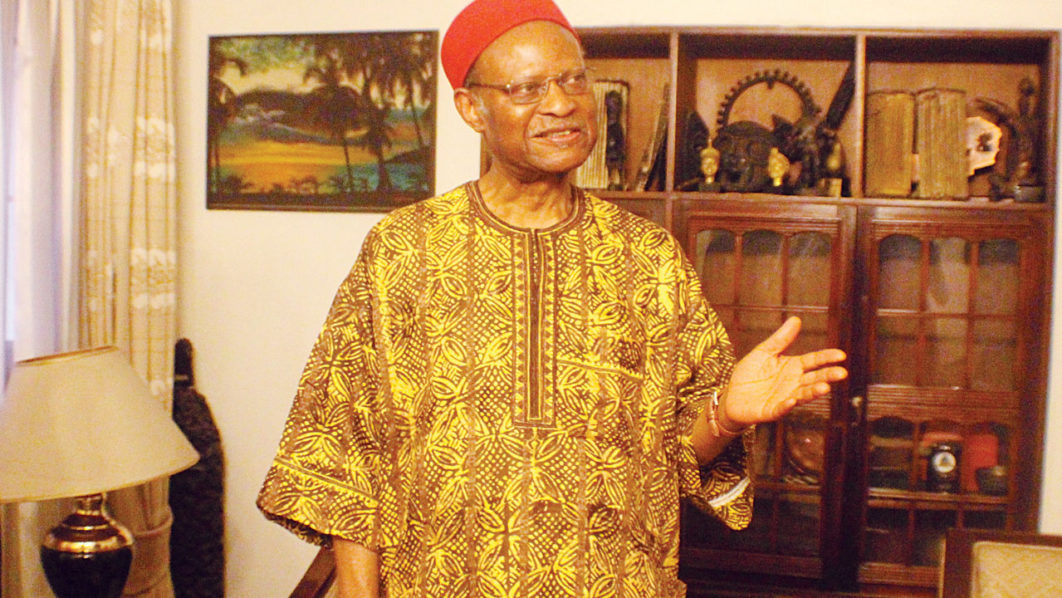
Urges FG, National Assembly to adopt 1963 Constitution
Former Commonwealth Secretary-General, Chief Emeka Anyaoku, has said that Nigeria, like many other countries across the world, is a pluralistic country, whose population consists of groups of peoples long established in their separate geographical areas with different histories, cultures, languages and religions.
He said that the universal lesson is that pluralistic countries, which have survived as single political entities in unity and progress, were those that addressed their pluralism and diversity with genuine federal constitutions.
Anyaoku also said the other pluralistic countries that failed to manage their pluralism with true federal constitutions eventually disintegrated. He said these, yesterday, during the launch of Emeritus Professor Akinjide Osuntokun’s biography titled, “The Noble Academic and Patriot: A Biography of Emeritus Professor Akinjide Osuntokun,” held at the Nigerian Institute of International Affairs (NIIA), Victoria Island, Lagos.
He said: “I believe that if our pluralistic Nigeria is to achieve true unity and political successfully tackle the challenges that the country currently faces, it must have a truly federal constitution.”
“To those who think that the trouble with Nigeria today is the political leadership, I would say that as long as we have the 1999 Constitution as our grundnorm, not even Angel Gabriel or Malaikah Jibrin as leaders, can successfully tackle the divisiveness, the underperforming economy with the resultant poverty, the insecurity, the humongous corruption, and the other major challenges currently facing Nigeria.”
He, therefore, said that for the sake of preserving our country, the Federal Government and the National Assembly should not delay any longer acting on what is clearly a universal lesson.
“We must have a true Nigerian peoples’ democratic constitution based on the principles that underlined our 1960/63 constitution, which was painstakingly negotiated and agreed by the founding fathers of independent Nigeria. As many of us here in this room will remember, Nigeria was more united, more stable and developing towards achieving its potential under that constitution until the military intervened in the country’s governance in January 1966 and introduced the unitary constitution that has virtually existed, albeit in different forms, until today,” he added.






